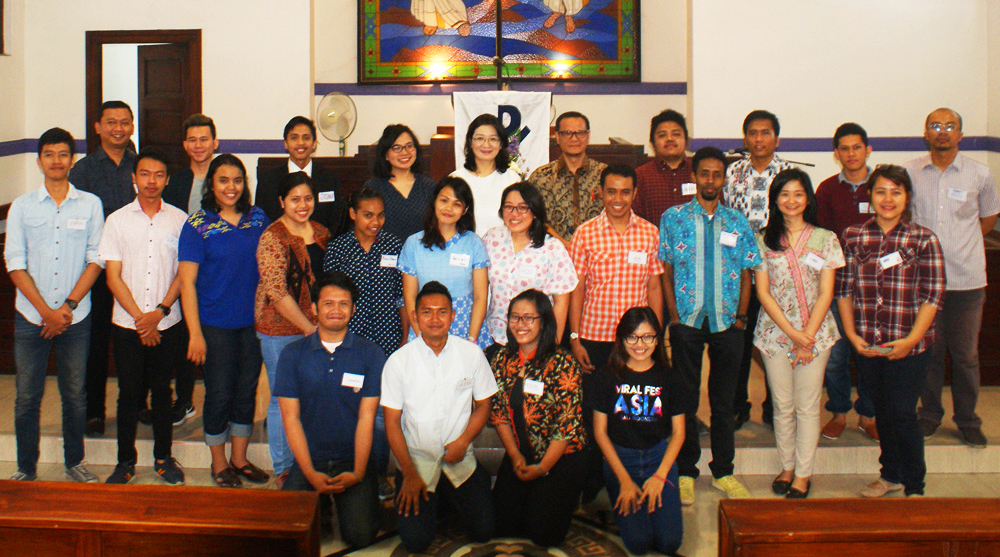Ecumenical formation training of youths in Indonesia emphasises paradigm shift
 Participants of the Ecumenical Formation Training in Yogyakarta, Indonesia.
Participants of the Ecumenical Formation Training in Yogyakarta, Indonesia.
“Young people are important agents in the transformation of the ecumenical movement in Indonesia, and Asia at large. It is hoped that through them, the Church and the Asian ecumenical movement will experience a paradigm shift,” Rev. Mazmur Gibrany of the Yayasan Pendidikan Dwituna Rawinala, told participants of the Ecumenical Formation Training of Indonesian Youth Leaders.
Organised by the Christian Conference of Asia (CCA), the leadership development training, held from 26-28 May 2017 at the Huria Kristen Batak Protestant (HKBP) in Yogyakarta city, Indonesia, was attended by twenty-seven youth leaders.
The main objective of the training was aimed at facilitating the ecumenical formation of Christian youths in the country. The training also focused on enabling youth engagement in advocating for social justice through ecumenical youth networks.
The training program was designed in a context where more and more young people are forced to migrate to other parts of the country, as well as beyond the borders in search of jobs, making them vulnerable to racist intolerance and inhuman treatment in their new surroundings.
The participants of the training program observed that even though many young people have contributed in the past to shaping the modern ecumenical movement in Indonesia, as well as in other parts of Asia, at present, the involvement of young people beyond local levels is limited.
“CCA’s ecumenical formation training for young people aims at providing opportunities for wider exposure which might help them become tomorrow’s ecumenical leaders,” said CCA Program Coordinator, Rev. Jung Eun Grace Moon.
Various sessions of the training program focused on Christian youth in a multi-religious Asian context and on the strengthening of Asian ecumenism at the grass roots level.
In a presentation on Contextual Church Life, Rev. Amin Zaitun said, “It takes a vital, re-actual, visionary and transformational leader with a managerial, ethical, spiritual and local leadership to develop a contextual church life.”
The participants testified towards the end of the program to contextually understanding wider issues in ecumenical perspectives, as well as bringing a paradigm shift in the ecumenical movement. They affirmed to be engaged in building inclusive communities by nurturing youth leaderships in their churches and communities.











